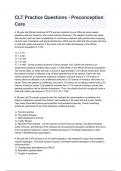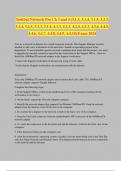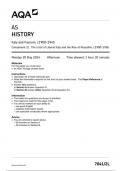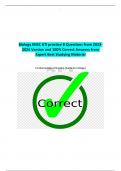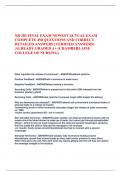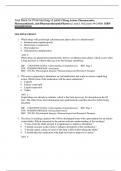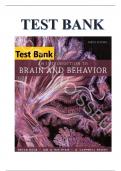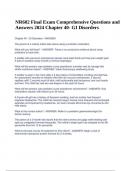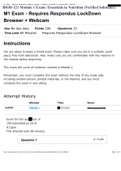Exam (elaborations)
CLT Practice Questions - Preconception Care Questions with 100% Actual correct answers | verified | latest update | Graded A+ | Already Passed | Complete Solution
- Institution
- CLT-Certified Logistics Technician
CLT Practice Questions - Preconception Care Questions with 100% Actual correct answers | verified | latest update | Graded A+ | Already Passed | Complete Solution
[Show more]
